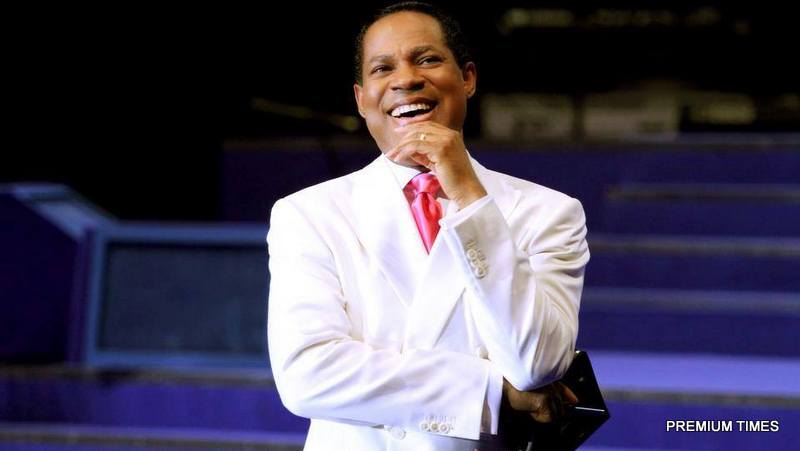
By Abimbola Adelakun
On Tuesday, we learned from the National Bureau of Statistics that Nigeria’s unemployment rate had officially risen to 33.3 per cent, up from 27.1 per cent in the second quarter of last year. The figure was not entirely surprising, given the scale of regression Nigeria has witnessed in the past five years. Anyone who has ever seen Nigerian youths milling about at an accident site at 8.30 on a Monday morning would have long sensed that trouble is looming.
Behind that alarming figure from the NBS are actual people; real lives of real humans being wasted away by a country that eats its own children. It is no joke that around one-third of the 70 million people who constitute the country’s labour force is presently unemployed and that another 16 million people are also underemployed. One cannot forget that official figures in Nigeria understate reality, partly because we are inefficient at counting and partly because stark reality has to be mitigated against its traumatising details. The actual figures of unemployed and underemployed people in Nigeria are probably much higher than what the NBS bureaucrats can publicly admit. Then, there are millions of others who are not even employable largely because they have not learned any basic skills that would put them in the position to search for a job at all.
READ ALSO: We found gold deposits along Abuja-Nasarawa highway – FG
For a country with such a burgeoning population, much of it underutilised, we have a people problem. Our population growth rate is a vast army of humans. If they are not armed with the right survival skills, they will eventually weaponise their frustration and anger. The consequences of this staggering abuse of human resource not only affect our immediate present but already jinx even the future. Those presently unemployed will be continuously joined by more young people reaching working age. Future developmental initiatives will be imperilled by the weight of these fellow humans who have barely been given a chance to realise their potential.
Nigeria’s people problem is not only revealed in the number of folks who have either never worked or cannot do so, but also in the pipeline through which society prepares people for life. First, we have the highest number of children out of school in the whole world. At the last count, three years ago, we were told there were 13 million of them. For the sake of perspective, that is the combined population of Sierra Leone and Liberia, and the figure has likely grown much higher since then. Due to the frequency of abductions in the country now, many schools in northern Nigeria are being shut by local administrators because they can no longer guarantee the safety of students.
Stories of abductions for ransom have become routine, another episode of Nigeria’s problem. Poor schoolchildren have been a desirable target of abductors because their kidnap generates the outrage that pressures politicians to pay for their release. In the past three months alone, about 800 schoolchildren have been kidnapped in states like Katsina, Niger, Zamfara, and Kaduna. Fortunately, security agencies managed to foil a plot to mass-kidnap schoolchildren in Kaduna lately. If their abductors had succeeded, they would have added some 300-plus children to an ignoble record. That small success by security agencies was a faint light of hope amidst so much darkness and gloom, but that is about it.
READ ALSO: Ex-JAMB registrar arrested for alleged N900m pencil, eraser fraud
If there is something we must have learned from the serial abductions that have been taking place in Nigeria, it is how structurally weak and organisationally inefficient our national security agencies are at managing the country’s complex terrain. Nigeria’s layout is just too complicated for efficient policing. Unfortunately, given how lucrative the enterprise of abduction has been, the perpetrators are not about to pack up their trade. We will have to choose between locking up schools and truncating the education of an entire generation of children, or leaving them at the mercy of kidnappers.
As if all of that is not bad enough, inflation gallops at a rate that exposes already precarious folks to further impoverishment. From the NBS, we also learned that inflation rose to 17.33 per cent last month, up from 16.47 per cent in January. This figure is reportedly the highest inflation recorded in four years, a testimony to how much and how quickly the purchasing power of people is dwindling and the quality of their livelihood diminishing. In several states, thousands of workers have been forced to subsist on partial salary payments, even while prices of all goods and services have wildly risen beyond the level their income can ever match.
At this point, one wonders if even Nigerian leaders have not given up on the country. Where are they in all of these? Does the President, Major General Muhammadu Buhari (retd), know how bad things have become? Do the aides surrounding him ever tell him how much his incompetence imperils Nigerian lives, or they merely fawn around him all day? Because he is hardly ever seen in public and much of what he supposedly communicates to Nigeria are press releases coughed up by his half-witted aides, there are few chances of hearing him speak directly and assessing his mind. But, does this man ever pause to reflect on how the impotence of his regime has impacted us from 2015 and how much the consequences will haunt us for another-30 years at the very least?
The Buhari regime spent much of his first tenure blaming corruption for everything that confounded them. What excuse do they have now, given that they have been in office for about six years? Is Buhari even aware of the state of the country? All these years, his aides have always wanted us to believe that he is “unaware” of the goings-on in the country. They will never let him take responsibility for his failings, so they do not dent the illusion of his competence.
YOU MAY ALSO LIKE: Asset declaration: Focus on bank MDs, others, workers reply EFCC
Apart from the presidency, we have different branches of government and bureaucracies, and virtually all of them are underperforming. From governors to the state and federal legislators, local municipal authorities, we are supposedly being served by a gigantic bureaucratic network. Yet, the degree to which people are suffering does not match their sense of mission. They are probably already desensitised to the human suffering that underlines all the figures of social regression being reported. Are our leaders worried about the rate at which Nigeria is sliding into nothingness? Or, like Buhari, have they reached the limits of their imagination and usefulness for the country? What really do they do for us? What are their plans to resolve our people problem?
If Nigeria’s current set of leaders are prodded on the need for urgency because the nation is losing time, most likely, their idea of time will pivot straight to the 2023 elections when they can jockey for a more favourable spot in the national feeding trough. Since the lines of victory and losses were drawn in the last general elections, nothing else has possessed our crop of leaders outside the schemes to capture power in the next election. Time has come to mean nothing in Nigeria other than the hiatus between one general election and the coming one. We are a country that does not plan for the future partly because we have lost all the know-how and partly because we have reduced administration in Nigeria to power grab and prebendal politics.
In recent times, all the statistics emerging from Nigeria have been pretty frightful, and they speak of a country seriously frittering away the valuable resource of time. In the history of a nation, time is composed of the life of its human citizens and serious countries know better than fritter it away. Lost time is irrecoverable, and the consequences pile up against the future. In the space of time during which countries like Nigeria have achieved nothing, others have accelerated their progress. They have been studying the fault lines in their national construct which the near-unique historical event like the pandemic has thrown up. As for Nigeria, it is mostly just doom, gloom, and missed chances.
aadelakun@punchng.com
END



Be the first to comment